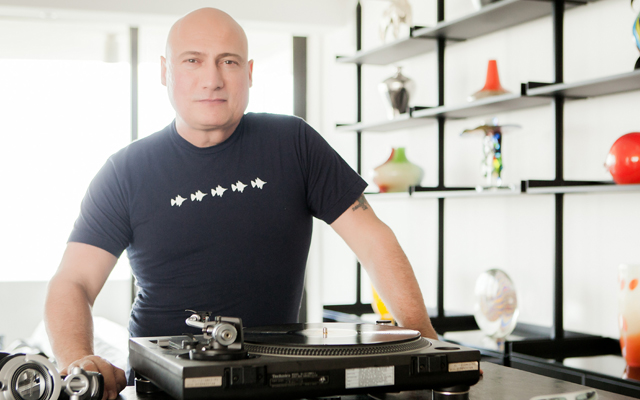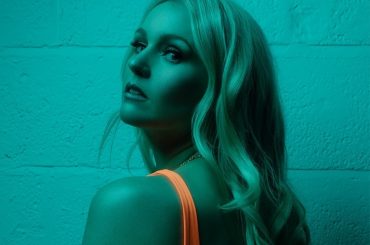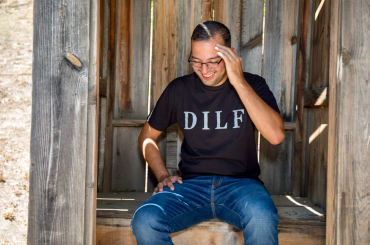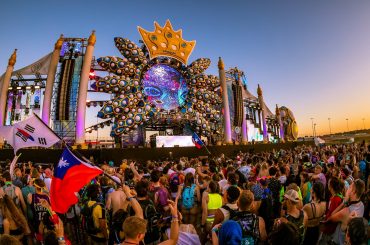New York City – David Mancuso at the Loft; Larry Levan at the Paradise Garage; Junior Vasquez at the Sound Factory and Palladium—the history of New York’s nightlife scene is rife with iconic DJ residencies, the kind of long-running gigs that defined the after-dark sound of the city.
With stints at such much-missed clubs as the Tunnel, Twilo and—most of all—Vinyl, which hosted his beloved “Be Yourself” parties from the late ’90s through 2004, Danny Tenaglia belongs on that list as much as anybody. One of the city’s and the world’s biggest DJs for three decades, Tenaglia could be forgiven if he had become a bit blasé about his chosen profession—but in conversation, the veteran’s love for the music, and the scene, shines brightly.
“I’m really still just a fan, just like I was so many years ago,” the Brooklyn-born Tenaglia says. “Even though I’m the guy in the booth, I feel like I’m out there on the floor with everybody else.”
From someone else, that kind of humility might come off as press-friendly baloney. But Tenaglia, famous for long-form sets that veer between gut-busting prog-tech and goosebump-raising deep house (with a few Garage classics tossed into the mix), is one of the most sincere and down-to-earth superstars in the business. It hasn’t always been easy; for instance, he famously “resigned” from DJing in 2012 (more on that below). But he’s still at the top of his game, gigging more than ever and constantly pushing his sound forward. You can hear the latest results of that sonic evolution on the recent Balance 25: Danny Tenaglia, a double-disc mix-CD that showcases his current style, one that fuses his patented bottom-heavy gut-punch to a steely and driving techno rhythm.
DJ Times recently caught up with the seminal spinner to talk about his music, his methodology, why he’s not crazy about festivals and how it feels to be in the pantheon of the DJ gods.
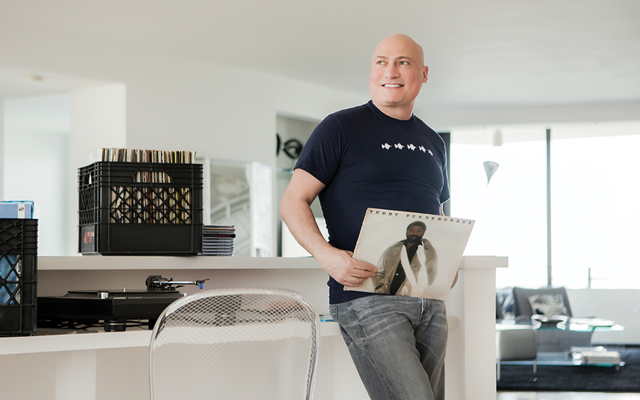
DJ Times: Your recent Balance mix was the first you’ve put together since 2008’s Futurism. Why such a long break from the mix-CD game?
Tenaglia: Most of the other CDs I’ve done have been somewhat reflective of my residencies. In ’96, for instance, I did my first Global Underground mix, and that was when I was at Twilo. Around ’98, I did Global Underground: London; that one was the Tunnel. Back to Basics, in 2002, was Vinyl, and so on. Futurism, which was 2008, was a little post-Vinyl, and it was probably the mix that I’ve done that was the least about any residency I’ve had. The mix was still somewhat of a journey, but it wasn’t really based on what I would play the whole night in a club—what I would open with, how the night’s feelings would progress and that sort of thing. It was more about embracing changes, like what was going in with techno and minimal, which was fine… but yeah, I haven’t done a CD since then. I like to have a residency that I can relate them to.
DJ Times: So why now?
Tenaglia: I wanted to do something that was reflective of the sets that I’m playing at places like Output and Berghain. So I was trying to stay away from diva-vocal kinds of records or tribal-ish ones; I wanted to show people what I can do in a slightly different, more techno style. But if I do another CD soon, I would like it to represent the deeper side of what I play.
DJ Times: You still mix it up when you play out, right?
Tenaglia: Sure. If I get to spin a long set, I’m always going to take a journey, which does take in a lot of the kind of music that’s on the Balance CD. But I do have a core audience that still likes that classic Danny thing, which involves a lot of New York, New Jersey and Chicago grooves, and also a lot of the edits I’ve done. But as we get further and further away from the years those sounds—and things like Salsoul—are from, I’ve had to start being more about… the future, I guess. On the Balance mix, it wouldn’t have made sense for me to figure out a way to drop in one of the older tracks, and try to figure out a way to get out of it. That one song would have stuck out too much, and I think people probably would tend to skip by it.
DJ Times: How do you construct your mixes?
Tenaglia: I’m using [Native Instruments] Traktor nowadays. Many of the things that I do today just can’t be done with records or CDs, even if you have a looping machine. There’s just so much going on; I’m sometimes utilizing up to seven decks when I play. And ideas will spark along the way—I’ll be like, oh, wow!—and I’ll have to take a screenshot or somehow what’s going on. Then I’ll take that idea into the studio, and utilizing Ableton and Logic, I’ll work on it. I treat everything like a remix, even if it’s just a re-edit—I’ll almost always add stuff on. Crashes, claps, heavier kicks… whatever might make it sound more modern or more beefy. Doing things like that—in addition to going for that techno vibe, which is the result of the musical path I’ve been on lately—is what differentiates this release from my past mixes.
DJ Times: Do you think that using tools like Traktor has renewed your overall enthusiasm for DJing?
Tenaglia: Without a doubt. I always make this joke about seeing DJ So-and-So on a flyer, and the flyer says that they’ll be doing a live set. And I say, “Well, what am I doing that isn’t live?” I mean, somebody like Jeff Mills, who is known for using a 909 drum machine in his sets and incorporating live patterns… they call that a live set, which it is. But I’m doing stuff like that as well, especially recently. Once you started to be able to easily loop things with CD players, or were able to use different effects machines, you’re really doing a lot more than just mixing two records together. But really, I don’t think I would want it to say “live” next to my name on a flyer, even though I’m doing a lot of totally spontaneous things. “Danny Tenaglia Live”—I mean, did you think I was dead?
DJ Times: You’ve been traveling more than ever lately, right? It seemed like you did a lot of festivals this past summer, for instance.
Tenaglia: I have been. But festivals are tough. Those aren’t my favorite places to play.
DJ Times: Why not?
Tenaglia: They’re just the hardest gigs to do, really! So many times, they don’t get the sound right, or the environment just isn’t there. For me, I rarely get the joy that I get out of playing an intimate party.
DJ Times: But you’re so good at festivals! You killed it at this past summer’s Electric Zoo [at Randall’s Island in NYC], for instance.
Tenaglia: Well, that was a good one. Electric Zoo really gets it right; most importantly, they get the sound right. I also think BPM and Coachella get it right—but I think I’m outgrowing most other festivals, to tell you the truth. Festivals are difficult, especially for an underground DJ. We’re not playing the music that people on the main stage are playing, which is full of vocals and bright, airy synths—it really cuts through. But the kind of tracks we’re playing, you really need to feel it.
DJ Times: To feel like you’re in the middle of it.
Tenaglia: Yeah, and that’s even a problem at a lot of clubs nowadays. They’ll just have speakers facing out from the stage; it’s more of a concert mentality than a club mentality. If I don’t have the power, the music I’m going to play is just not going to cut it; it’s not going to have the effect I want it to have. It’s hard for me to tell my proper story, and to do what I do in a way that reflects my 30-plus years as a DJ. But let’s face it—we know where we are in this world, Deadmau5 on the cover of Rolling Stone. It’s a whole new ballgame.
DJ Times: Your fans might think you’d make good cover-boy material yourself.
Tenaglia: Quick, call Rolling Stone! But I have to make a hit record first.
DJ Times: Speaking of records, its been a while since you’ve had your own productions come out. Do you plan to get active on that front again, whether it’s via remixes or original productions?
Tenaglia: I can’t begin to tell you how much I miss that, and how much I feel is burning inside me. I still don’t feel like I’ve really fully expressed myself.
DJ Times: Never?
Tenaglia: Actually, yeah, I have—for instance, the work I did in the early ’90s with Peter and Vanessa Daou. That was really a case of just doing what I wanted to. And there was the album, Tourism, and tracks like “Elements” and “Be Yourself.” But later on, studio budgets and record labels were plummeting, and I was just concentrating on having a career as a DJ. Since around 2002, when I did those remixes for Depeche Mode [“I Feel Loved”] and Kings of Tomorrow [“Finally”], I haven’t really done anything major, except for the Yoko Ono “Walking on Thin Ice” remix, which I never really thought of as much more than a novelty project.
DJ Times: Do you have specific plans for any upcoming releases?
Tenaglia: Yeah, I do. I’m hungry to get back in the studio; I think things will be happening soon. But, with all due respect to anyone who I’ve ever worked with in a studio, I don’t feel like I’ve ever found another person that I really vibe with. Working in a studio with someone is nothing short of being in a relationship with someone, and it’s always felt like the people who I felt I could really get things done with—the people who I could really rely on—can’t be there. They’d be traveling, I’d be traveling, or whatever. I mean, there have been people, like DJ Vibe or Tom Stephan… but I was never able to find that one particular partner who I could rely on.
DJ Times: Do you feel like you need a partner when you work in the studio?
Tenaglia: I know where my talents lie in the studio. I know that I can be pretty good with basslines and samples, rhythms and soulful vocals. But I need to be able to inject that into what the other person is injecting into a project as well. If it’s just me, it’s not really enough—I tend to get lost within my roots of deep house and garage.
DJ Times: Can you name anybody who you might like to work with?
Tenaglia: I could name a lot of people, like Chris Liebing, Adam Beyer, Timo Maas or Joseph Capriati. But I only see them in my travels; they’re not in New York.
DJ Times: And you don’t think just sending tracks back and forth with a partner would work for you?
Tenaglia: Nah, I’m not a long-distance relationship kind of guy!
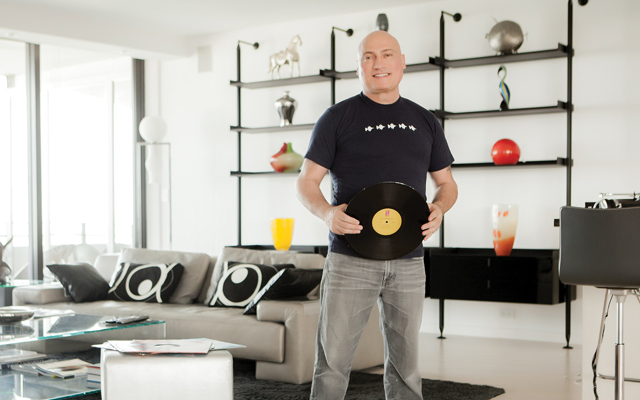
DJ Times: I guess we’re lucky that you’re still around at all. It was around two-and-a-half years ago that you announced that you were, as you put it, “resigning.”
Tenaglia: There were a lot of elements involved in me getting to that point. There a real deep frustration, and I think I chose inappropriate words to say that I was “resigning, but not retiring.” It was kind of lost in translation; I didn’t realize the effect that could have. I didn’t mean to say that I was leaving forever or anything.
DJ Times: What did the frustration stem from?
Tenaglia: A big part of it was that I had lost my laptop, with so much stuff on it. My tracks, my edits—I lost a lot. But that was just the icing on the cake, and things had been really been brewing for a while. The frustrations of travel was getting to me; all the language differences time differences, jet lag… as soon as I would readjust back to New York, it would be time to pick up and go again. People say, “Oh, you have such a luxurious life—I wish I had that life.” They don’t know. Even when you get a first-class seat with the flat bed and everything, it’s only a six- or eight-hour flight, and eventually you’ve got to get there, check in, deal with people and get to the event. And that can be frustrating, especially when it’s for a festival.
DJ Times: How so?
Tenaglia: Its like, you brought me all the way over here for 90 minutes? I was just feeling like my time was not being properly utilized. It’s four or five days to do one or two gigs like that, and their not bringing me the joy that I would get from, say, playing at Vinyl. And there were more things involved, too. My mom and my aunt had passed in 2008, and I don’t think I had properly filtered that. I had just turned 50, which wasn’t easy. I was starting to have thoughts like, where is this all heading? Am I just doing this to pay rent? I didn’t know where I fit in. The world was changing, and I didn’t really know what to do.
DJ Times: You actually did take some time off from DJing, right?
Tenaglia: Yeah, and a lot of good came out of that, really. I lost myself in other work, doing things like revitalizing my files and learning Traktor. And that renewed my interest in DJing. It took my frustrated producing skills, and taught me how to bring those skills to the DJ booth. It’s given me a new spontaneity.
DJ Times: Do you find that as satisfying as actually working in the studio to make a record?
Tenaglia: Maybe more so. It enables people to see the kind of magic that they would never witness if I was working in a studio. People don’t get to see when Peter Daou is doing a solo, or when I’m tweaking a Liz Torres vocal, trying to get that magic moment down. Once a record is released, there’s not much thought of how that was conceptualized. But now that I can do that live, it’s a whole different world. I can do things in a DJ setting that I never would have imagined would have worked. I just wish I had this technology 20 years ago!
DJ Times: I’m sure you would have loved to explore the possibilities that you now have at, say, Vinyl, when you were playing to an adoring crowd every week.
Tenaglia: Oh, that would have been amazing. But even if I get a residency again, it would never be like Vinyl was.
DJ Times: A lot people who came to hear you at that club think of you as their version of Larry Levan at the Paradise Garage.
Tenaglia: I’ve heard that, and I really, really love when people say that, even if it’s some random person on Facebook. “You are to us what Larry Levan was to you.” I mean, like really? How? But it really makes me feel so good. Vinyl was a real home to a lot of people.
DJ Times: Do you feel it’s an apt comparison at all?
Tenaglia: Larry was able to make you feel what he was feeling—that’s what I learned from him. And I think that I was able to express that at Vinyl. I have such a love for that venue, its sound and the people who came there. I really do care for those people. They were the ones who made the party.
DJ Times: Do you think you ever actually will retire from DJing?
Tenaglia: I don’t think so. I think it will progress as it has, from pubs in Williamsburg in ’77 to roller discos to where I am now—and who knows what’s next? I don’t think I’ll ever retire from a life in music. It’s what I eat, sleep and breathe, and I really can’t imagine doing anything else.
Going Global: DT’s Fave Clubs to Play
Output, Brooklyn: Since Vinyl closed, Output is the first New York club that reminds me of the residencies I’ve had New York through the years. It has an intimate feeling that I haven’t felt anywhere—at Spirit, Crobar, Pacha or wherever. It’s not so massive that you get lost in the enormity of it, and the DJ booth gives you a good birds-eye view.
Stereo, Montreal: Even though it’s in Montreal, Stereo is the only club in the world that I think has the essence of what New York clubbing was all about in the’70s and ’80s. It really just feels like one of those old venues I used to go. And the sound is tremendous.
Berghain/Panorama
Bar, Berlin:
I love Berghain—and Panorama Bar, too, of course. It’s the best of both worlds, with Berghain for techno and Panorama Bar for house. The vibe is so great, and I get to play lots of old school and classic stuff when I’m there, which is perfect for me.
– B.T.


